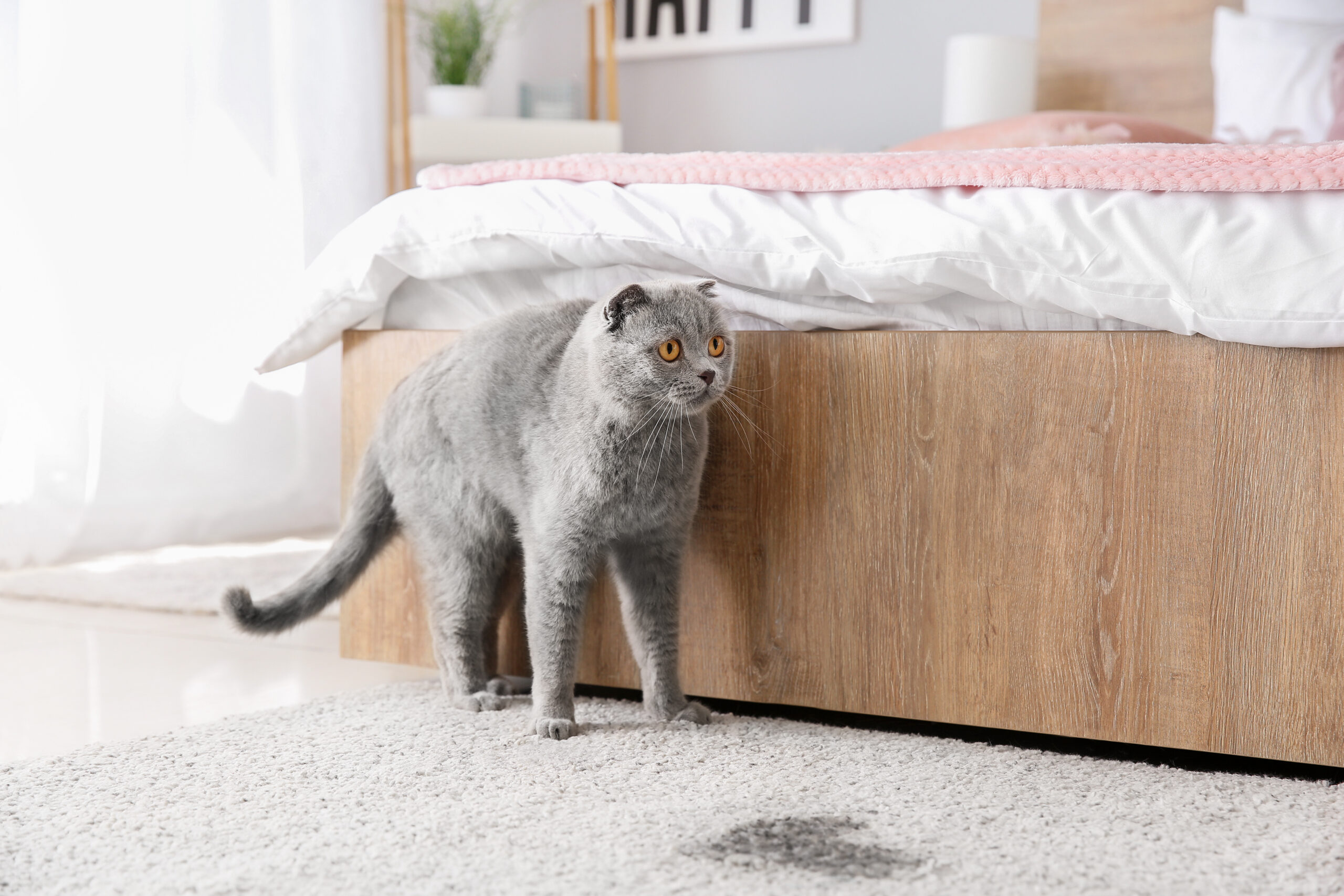If you’re a cat owner, then you know the struggle of dealing with their messes. From hairballs to litter box accidents, cats can leave quite a mess behind. But what about those pesky stains that seem impossible to remove? Many cat owners swear by vinegar as a go-to cleaner, but have you ever wondered if there’s something better out there? Like enzyme cleaners, which are known for their ability to break down organic matter and eliminate odours. But are they really better at removing stains?
What are enzyme cleaners?
Enzyme cleaners are a type of cleaning agent that contains enzymes that break down organic matter, making it ideal for removing cat stains. Enzyme cleaners are safe to use around pets and children, and are often more effective than vinegar at removing cat stains.
When used in cleaning products, enzymes break down the molecules in stains, making them easier to remove.They’re effective at removing a variety of marks, including protein-based stains like blood and vomit, as well as oil-based stains like grease and makeup. They can also be used on fabrics that are delicate or cannot be machine washed, such as wool or silk. While enzyme cleaners are more expensive than some other types of cleaners, they are often worth the investment because of their effectiveness.
What is vinegar?
Vinegar is a natural acidic liquid that can be used to clean a variety of surfaces, including carpets and upholstery. When used on carpet or upholstery, vinegar can help to break down and remove pet stains. Vinegar is also effective at removing built-up dirt and grime.
Vinegar can be made from a variety of sources, including fruits, grains, and milk. The most common type of vinegar used in cleaning is white vinegar, which is made from distilled ethanol.
It’s effective at removing stains due to its acidity. When vinegar comes into contact with a stain, it breaks down the molecules that make up the stain. This makes it easy to remove the stain with a cloth or sponge. Not only can it tackle tough marks, but it’s also effective at removing odours. The acidity of vinegar neutralises the molecules that cause the nasty smells, leaving your home smelling fresh and clean.However, one downside of using vinegar as a cleaner is that it can damage some surfaces. It shouldn’t be used on marble or other porous surfaces as it can eat away at the material. You should also avoid using vinegar on hardwood floors as it can dull the finish. If you do use vinegar to clean hardwood floors, be sure to rinse the area well afterwards with water to remove any residue.
The Pros and Cons of each method
There are pros and cons to using either enzyme cleaners or vinegar to remove cat stains. Pet enzyme cleaners are designed to break down the protein in the stain, which can be effective on fresh stains. However, they may not be as effective on older stains. Vinegar, on the other hand, is acidic and can break down urine crystals, making it more effective on old stains. It’s also less likely to cause damage to your carpet or upholstery.
Which is better for removing cat stains?
There are a lot of factors to consider when removing cat stains, and enzyme cleaners and vinegar are two popular options. Enzyme cleaners are usually more expensive than vinegar, but they’re also more effective at breaking down the proteins in cat urine, which can help to remove the stain completely. Vinegar is a cheaper option, but it’s not as effective at breaking down proteins, so it may not remove the stain completely.
Conclusion
Enzyme cleaners are a great alternative to using vinegar when it comes to removing cat stains. Not only do they work better at breaking down the proteins found in these types of messes, but because of their non-toxic nature, enzyme cleaners are safe for use around children and pets. So if you’re looking for an effective way to remove those pesky cat stains from your carpets or furniture, consider trying out an enzyme cleaner instead of vinegar for best results.
